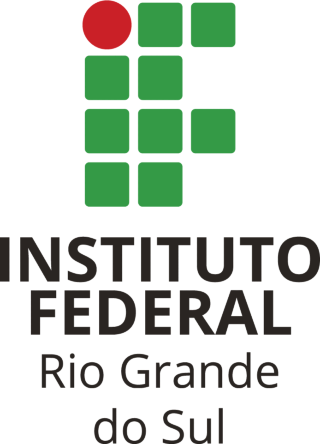| dc.contributor.advisor |
Daminelli, Elisa |
pt_BR |
| dc.contributor.author |
Pinto, Julia Ferri |
pt_BR |
| dc.date.accessioned |
2024-05-13T18:56:01Z |
pt_BR |
| dc.date.available |
2024-05-13T18:56:01Z |
pt_BR |
| dc.date.issued |
2024 |
pt_BR |
| dc.identifier.uri |
https://dspace.ifrs.edu.br/xmlui/handle/123456789/1177 |
|
| dc.description.abstract |
A presente pesquisa tem como objetivo discutir sobre a representatividade de autoria LGBTQIAP+ na literatura das aulas de língua portuguesa e literatura do IFRS - Campus Osório, por meio da concepção das pessoas discentes do quarto ano. Além de trazer as suas vivências enquanto pessoas leitoras ao longo do ensino médio, elas também puderam contribuir trazendo experiências que tiveram ao longo do ensino fundamental, construindo uma perspectiva sobre a literatura que tiveram contato ao longo de todo o ensino básico. Parte-se aqui da perspectiva de que a literatura possibilita refletir sobre a representação de pensamentos, culturas e
períodos, proporcionando discutir elementos extra-textuais, sem desvinculá-los aos aspectos ficcionais e estéticos da produção literária. Logo, a ausência de representatividade (especificamente a de autoria LGBTQIAP+) no ensino de literatura, reflete uma escolha docente que pode estar vinculada à compreensão do que é e o que não é literatura, quem produz uma boa literatura e quem não a produz. A partir dessas reflexões, foi desenhado o objetivo principal desta pesquisa que é analisar se pessoas estudantes do quarto ano dos cursos de Ensino Médio Integrado do IFRS – Campus Osório tiveram contato com literatura de autoria LGBTQIAP+ ao longo da educação básica e qual a perspectiva delas em relação à representatividade desse marcador na literatura utilizada nas aulas de língua portuguesa e literatura. Para tal finalidade, foram desenvolvidos os seguintes objetivos específicos: (i) analisar se os PPCs dos cursos de ensino médio integrado do IFRS – Campus Osório abordam questões referentes ao ensino de literatura e com qual paradigma de ensino de literatura está alinhado; (ii) traçar um perfil das
pessoas participantes da pesquisa; (iii) discutir com as pessoas participantes sobre a representatividade (ou não) LGBTQIAP+ na literatura que tiveram acesso no ensino básico, especialmente no ensino médio. Como resultados, espera-se coletar dados relevantes para discussões acerca da representatividade LGBTQIAP+ e o ensino de literatura, trazendo reflexões sobre a importância ou não de uma literatura que trabalhe com representatividade. |
pt_BR |
| dc.description.abstract |
The present research aims to discuss the representation of LGBTQIAP+ authorship
in the literature of Portuguese language and literature classes at IFRS - Campus
Osório, through the perspective of fourth-year students. In addition to sharing their
experiences as readers throughout high school, they can also contribute by sharing
experiences they had during elementary school, thus forming a perspective on the
literature they encountered throughout their basic education. The starting point here
is the idea that literature allows for reflection on the representation of thoughts, a
culture, or a period, providing a platform to discuss extratextual elements without
disassociating them from the fictional and aesthetic aspects of literary production.
Therefore, the absence of representation (specifically LGBTQIAP+ authorship) in
literature education reflects a teaching choice that may be linked to the
understanding of what is and what is not literature, who produces good literature, and
who does not. From these reflections, the main objective of this research was
formulated, which is to analyze whether fourth-year students at IFRS - Campus
Osório had contact with LGBTQIAP+ authored literature during their basic education
and what their perspective is regarding the representation of this marker in the
literature used in Portuguese language and literature classes. For this purpose, the
following specific objectives were developed: (i) to analyze whether the Integrated
High School Curriculum Plans (PPCs) of IFRS - Campus Osório courses address
issues related to literature education and with which literature teaching paradigm they
are aligned; (ii) to outline a profile of the participants in the research; (iii) to discuss
with the participants the representation (or lack thereof) of LGBTQIAP+ in the
literature they had access to during their basic education, especially in high school.
As a result, we hope to collect relevant data for discussions on LGBTQIAP+
representation and literature education, bringing reflections on the importance or lack
thereof of literature that deals with representation. |
en |
| dc.format.mimetype |
application/pdf |
pt_BR |
| dc.language.iso |
por |
pt_BR |
| dc.rights |
Open Access |
en |
| dc.subject |
Língua portuguesa (Ensino médio) |
pt_BR |
| dc.subject |
Literatura |
pt_BR |
| dc.title |
Tem representatividade de autoria LGBTQIAP+ na literatura das aulas de língua portuguesa e literatura? uma visão das/os discentes do quarto ano do ensino médio do IFRS – Campus Osório |
pt_BR |
| dc.type |
Trabalho de conclusão de especialização |
pt_BR |
| dc.degree.grantor |
Instituto Federal de Educação, Ciência e Tecnologia do Rio Grande do Sul |
pt_BR |
| dc.degree.level |
Especialização |
pt_BR |
| dc.degree.date |
2024 |
pt_BR |
| dc.degree.local |
Osório, BR-RS |
pt_BR |
| dc.degree.department |
Campus Osório |
pt_BR |
| dc.degree.specialization |
Especialização em Educação Básica e Profissional |
pt_BR |



